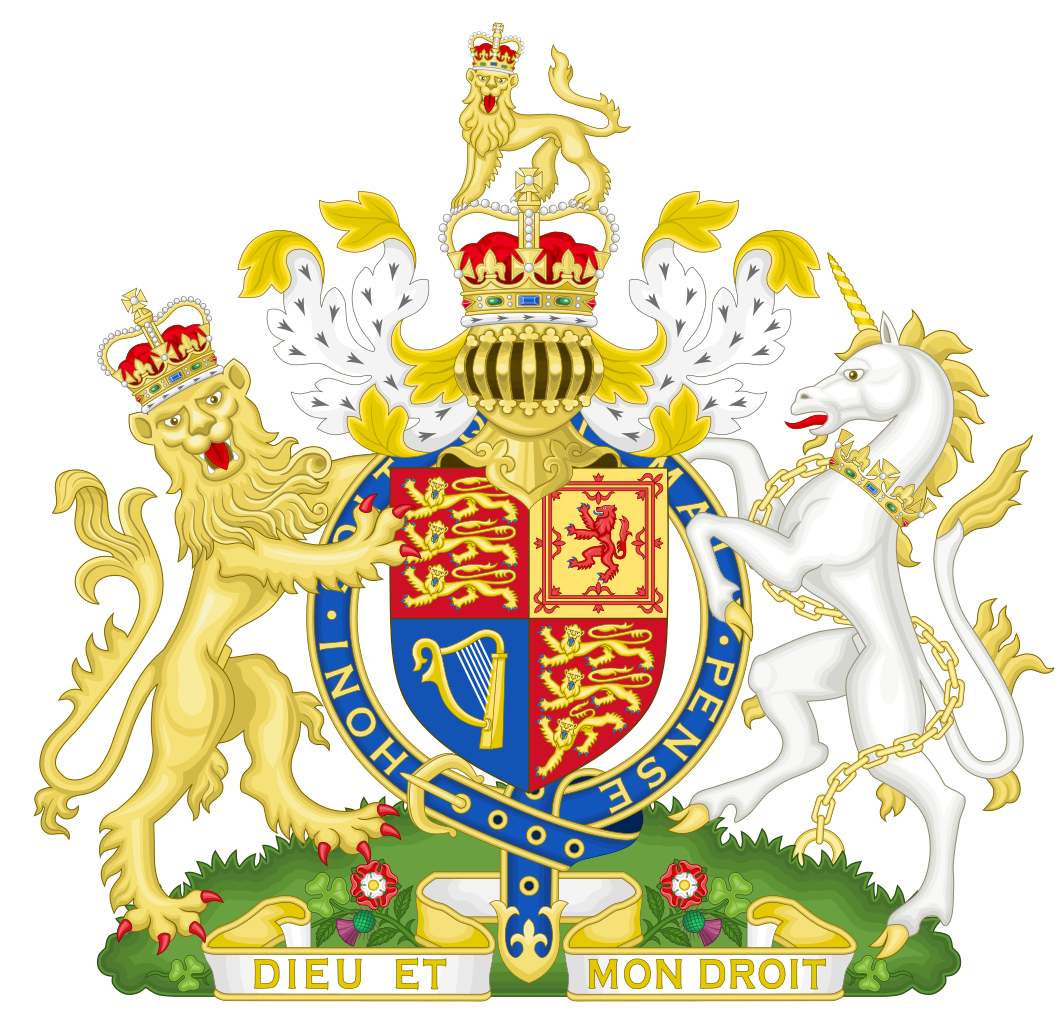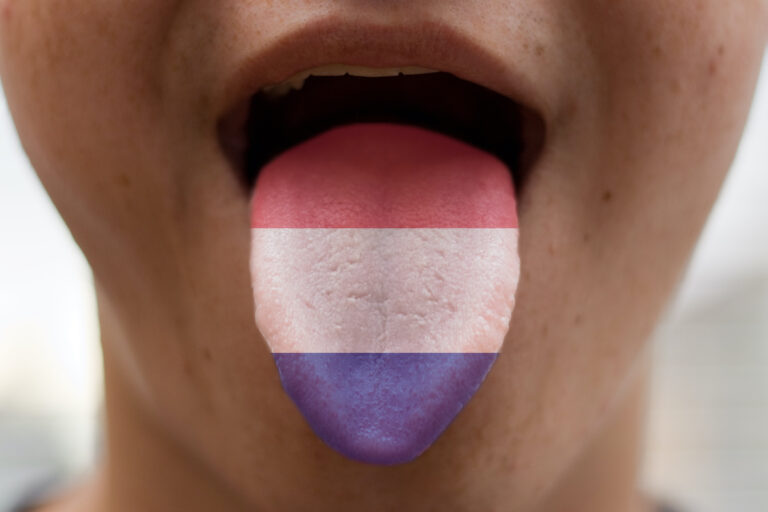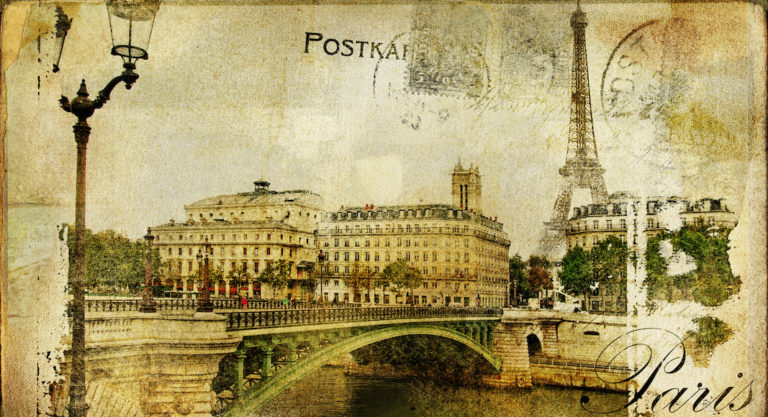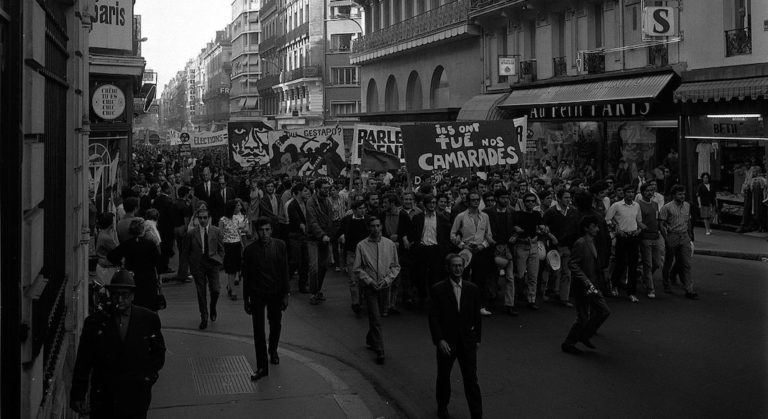“Let’s get a comfortable table in the front part of the restaurant. We can watch television and look at the menu while we wait for my cousin.”
Table, part, restaurant, television, menu, and cousin — those are all French words, all even spelled the same way as in French. And what if you decide to order salad and onion soup? That’s three more (salade, oignon, soupe). You’re speaking French!
These words and thousands more come from la belle France. How many? Estimates vary, some think that up to half of all English words were originally French, but most estimates are in the range of 1/4 to 1/3.

Sex Comes From France
French, a Romance language, has given us some great words like sex, desire and pleasure. And a few not-so-great ones like poverty, terror and scandal.
How did this happen? Didn’t the English language start out as German?
Well, yes, but then William the Conqueror arrived in 1066. He came from Normandy, a part of France, and brought his language with him. Norman French became the language of the royal court and the upper classes, and slowly worked its way into everyday usage. Governnment, clergy, sir—these words all arrived with the Norman conquest. The United Kingdom’s royal coat of arms is still written in French. (You can find it on the UK government’s website, just scroll down to the bottom.)

The Brits happily accepted the presence of French in their country until the Hundred Years War against France. Up in arms (figuratively and literally) over the enemy origin of much of their language, the English launched a program of Latinization. French words in English had their spelling changed to make them look more Latin. Thus juge became judge, salive became saliva and aventure became adventure.
Another wave of French words entered English during the industrial revolution, as new technical terms were invented worldwide. Turbine, for example, comes from French.
The English Counter-Attack
If French words have made their way into English, is the opposite true?
Yes, there are English words in French—like challenge, flirt and humor—but not many. And even some of these are still French! Budget, for example, comes from the Middle French bougette. This word went from France to England, died out in France, and then returned with a new spelling.
But with the rise of English as the world’s global language, more and more English words are making their way eastward across the English Channel. They may not be proper French but French people use them anyway—“Let’s have un meeting over un brunch on le weekend.”
La Résistance
France has fiercely fought this influx of anglais. In 1994 the country instituted the Toubon Law, mandating the use of French in all government communications, workplaces, contracts, and advertising. Companies have received large fines for not complying with the law.
And then there is the French Academy, founded by Cardinal Richelieu in 1635. This august body rules on the acceptability of new words and if they don’t like one, they invent a new French word instead. They even have a whole page on their website dedicated to English words not to say, and French words to stay instead.
Sometimes these are accepted and make their way into everyday usage, like ordinateur for computer. But other times, non. Who uses mot-dièse for hashtag or une femme qui aime la mode for fashionista? And how about d’un autre âge, d’un autre temps for has-been? Personne! To be honest, the Academy’s power is more symbolic than real. (Sometimes even the government ignores them.)
And so the battle continues. French and English: frenemies forever. Or should that be amis-ennemi?






